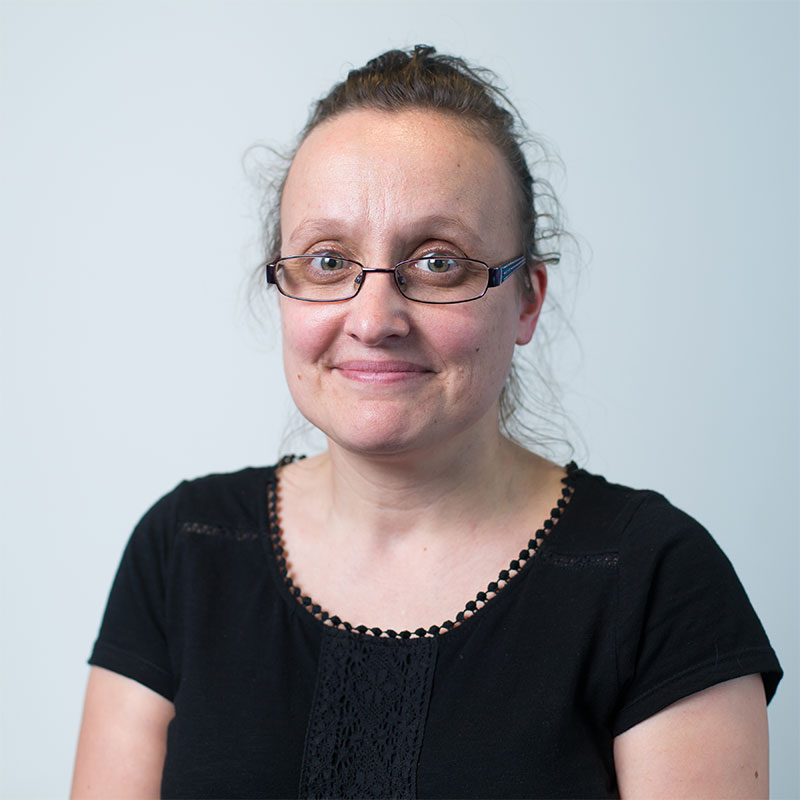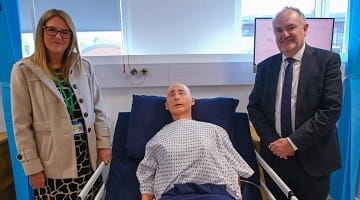About this course
LJMUs Cosmetic Science MSc provides postgraduates with expertise in formulation, testing and regulations relating to the UK and global cosmetics industry.
- Study on this Cosmetic Science MSc, which has been designed in consultation with industry
- Learn from a research active, academic team within one of the oldest and well-established schools of pharmacy in the world
- Discover key modules taught by world-renowned academics involved in the EU Horizon Cosmos Project, with a strong emphasis on the safety assessment of cosmetic products
- Undertake research projects with potential industry partners and academic research groups, including: Formulation and Drug Delivery Group, Chemoinformatics Research Group and Biomedical Science Research Group
- Enhance your knowledge of cosmetic products and gain hands-on laboratory experience
- Develop an in-depth understanding of safety and regulatory requirements
- Acquire business knowledge and skills to create and launch new cosmetic products
The MSc Cosmetic Science has been designed to introduce new concepts, ideas and methods to students, whilst also encouraging them to become more independent thinkers.
The curriculum has been designed in consultation with industry to enable you to develop the higher level academic knowledge and practical skills required by the cosmetics sector.
On graduation you will be able to produce and market new products for potential employers in the industry, as well as be in a position to start your own business.
There may be opportunities to undertake a research project at a cosmetic science company as part of the programme.
Course modules
Discover the building blocks of your programme
Your programme is made up of a number of core modules and a Research Project.
Further guidance on modules
Modules are designated core or optional in accordance with professional body requirements, as applicable, and LJMU’s Academic Framework Regulations. Whilst you are required to study core modules, optional modules provide you with an element of choice. Their availability may vary and will be subject to meeting minimum student numbers.
Where changes to modules are necessary these will be communicated as appropriate.
Core modules
Optional modules
Your Learning Experience
An insight into teaching on your course
Study hours
The teaching hours on the MSc Cosmetic Science programme can be timetabled on Monday to Friday between 9am-6pm in semester one and two. There will be weekly differences in the timetabled sessions in relation to the times and locations depending on whether your sessions are lectures, practicals, workshops or seminars. Specific timetables will be provided at the beginning of the semester. When there are no sessions on at the university it is expected that students undertake independent learning including reading around lecture content, preparing for coursework assessments and revision for examinations. The amount of independent study expected to be undertaken is dependent on the module credit size and information will be provided at the beginning of the course. The programme in semester three has a research project where you will be expected to undertake independent research and work between 9am-5pm.
Teaching methods
Course content is delivered via a combination of interactive lectures, workshops, seminars and project work.
Applied learning
There may be opportunities to undertake a research project at a cosmetic science company as part of the programme.
How learning is monitored on your programme
To cater for the wide-ranging content of our courses and the varied learning preferences of our students, we offer a range of assessment methods on each programme.
On this programme you will be assessed via a combination of exams and coursework including: laboratory reports, essays, oral and poster presentations, research project reports, problem solving exercises and case studies.
Where you will study
What you can expect from your School
You will study at the Byrom Street site in the University's City Campus. With an ongoing 12 million investment in laboratory facilities here and state-of-the-art research facilities in the newly developed Life Sciences building, you'll enjoy a first class study environment.
Course tutors

Dr Amanda Boddis
- Programme Leader
I enjoy developing new practicals and organising events that enhance the student experience.
I enjoy developing new practicals and organising events that enhance the student experience.
Amanda is a Senior Lecturer and Programme Leader for MSc Cosmetic Science. She is also a Disability Co-ordinator and International Mobility Co-ordinator. Amanda completed her PhD in the detection of drugs of abuse in latent fingerprints using antibody functionalised nanoparticles. Her research interests are varied and include the detection of latent fingerprints from the inside of gloves and on fabrics. In forensic science, cosmetics are classed as trace evidence and she is therefore interested in the detection and identification of trace amounts of cosmetics collected from crime scenes. This involves the use of different types of analytical chemistry techniques.
-
 Professor
Professor
Career paths
Further your career prospects
LJMU has an excellent employability record with 96% (HESA 2018) of our postgraduates in work or further study six months after graduation. Our applied learning techniques and strong industry connections ensure our students are fully prepared for the workplace on graduation and understand how to apply their knowledge in a real world context.
This programme offers a coherent and progressive education, providing expertise and knowledge in formulation, testing, regulation and licensing ready for employment in the cosmetic, perfumery and related industries.
Although the majority of graduates will go on to secure employment in cosmetic and perfumery companies, there is also the option to progress your academic studies by studying for a PhD.
Tuition fees and funding
- Home fee:
- £10,705
Fees
The fees quoted at the top of this page cover registration, tuition, supervision, assessment and examinations as well as:
- library membership with access to printed, multimedia and digital resources
- access to programme-appropriate software
- library and student IT support
- free on-campus wifi via eduroam
Additional costs
Although not all of the following are compulsory/relevant, you should keep in mind the costs of:
- accommodation and living expenditure
- books (should you wish to have your own copies)
- printing, photocopying and stationery
- PC/laptop (should you prefer to purchase your own for independent study and online learning activities)
- mobile phone/tablet (to access online services)
- field trips (travel and activity costs)
- placements (travel expenses and living costs)
- student visas (international students only)
- study abroad opportunities (travel costs, accommodation, visas and immunisations)
- academic conferences (travel costs)
- professional-body membership
- graduation (gown hire etc)
Funding
There are many ways to fund postgraduate study for home and international students. From loans to International Scholarships and subject-specific funding, you’ll find all of the information you need on our specialist postgraduate funding pages.
Please be aware that the UK’s departure from the EU may affect your tuition fees. Learn more about your fee status and which tuition fees are relevant to you.
Entry requirements
You will need:
Qualification requirements
How to apply
Securing your place at LJMU
To apply for this programme, you are required to complete an LJMU online application form. You will need to provide details of previous qualifications and a personal statement outlining why you wish to study this programme.
Your university life
From accommodation and academic support to clubs and societies. Find out what LJMU has to offer.
Related Links
Talk to our students
Connect with a current LJMU student for advice and guidance on university life, courses and more.
See what our students are saying
At LJMU we want you to know you’re making the right choice by studying with us. You can see what our students are saying about their experience with us through their reviews on the following websites:
Related Links
News and views
Browse through the latest news and stories from the university
The University reserves the right to withdraw or make alterations to a course and facilities if necessary; this may be because such changes are deemed to be beneficial to students, are minor in nature and unlikely to impact negatively upon students or become necessary due to circumstances beyond the control of the University. Where this does happen, the University operates a policy of consultation, advice and support to all enrolled students affected by the proposed change to their course or module.

























.png)

.png)

